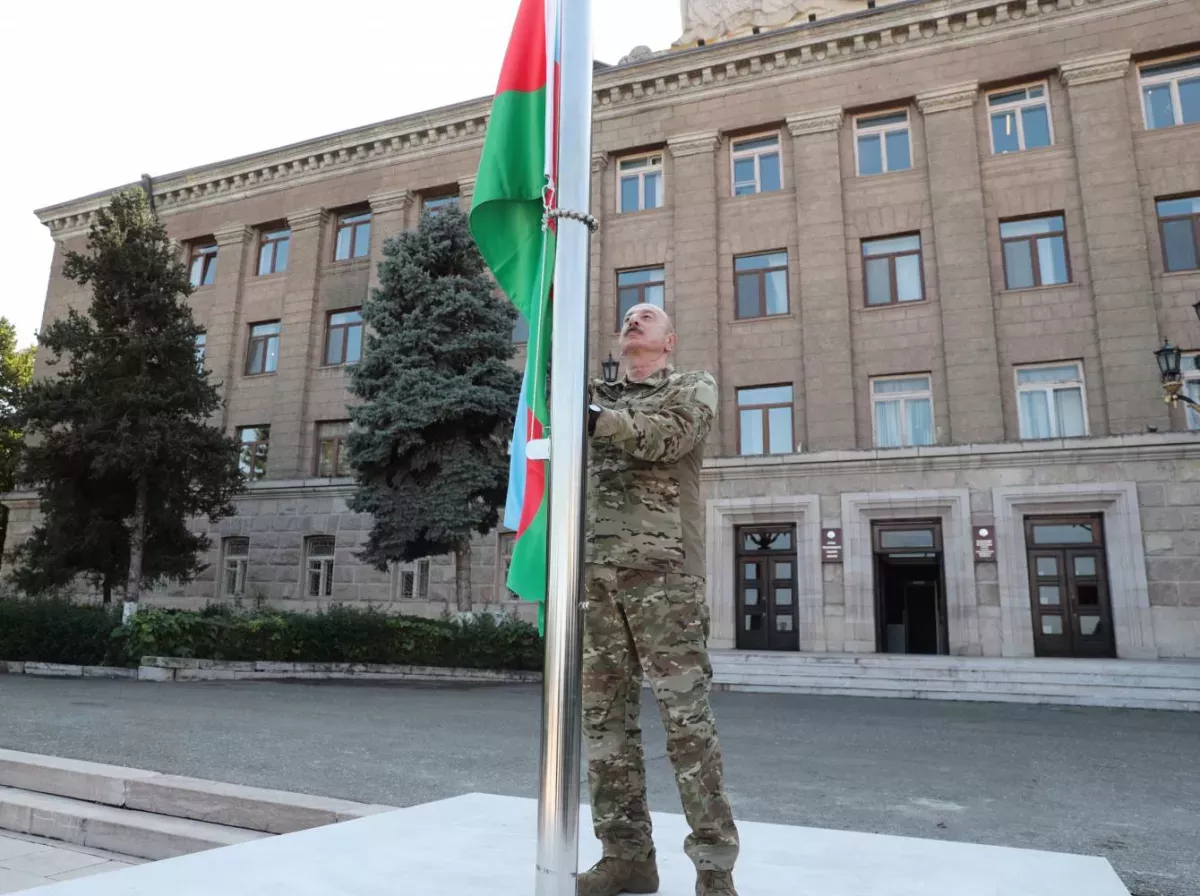Tearing down the building of hostility Armenia’s prosecutor’s office vs. “miatsum”
A significant event took place in Armenia this week. Citing Armenian media: “On July 15, the Prosecutor General's Office filed a lawsuit against the Cadastre Committee in the Administrative Court, demanding the annulment of the state registration of ownership rights granted to the government of Nagorno-Karabakh for a building in Yerevan. Essentially, the prosecution seeks to reclaim the building that served as the permanent representation of Artsakh.”
This decision provokes mixed feelings. On the one hand, it can only be welcomed, as it signals that official Yerevan is attempting to extinguish the embers of the Karabakh fire. On the other hand, two things are surprising. First, why wasn’t this done earlier? And second, why does the decision only concern the building of the “organization” and not the organization itself?
This is especially puzzling given that in October 2022, Prime Minister Pashinyan recognised Karabakh as part of Azerbaijan by signing the Prague Declaration.
Yet, nearly a year later, in September 2023, he managed to congratulate his compatriots on the “Independence Day of Nagorno-Karabakh.” That congratulation arguably remains one of the strangest episodes of the Armenian-Azerbaijani conflict. It demonstrates that not only the words, but even the signatures of Armenian officials must be treated with caution.

However, the one-day counter-terrorism operation in Karabakh on September 19–20, 2023, and the raising of the Azerbaijani flag in Khankendi completely discouraged the Armenian Prime Minister from making similar statements. And now, at a recent press conference, Pashinyan expresses regret that he did not recognise Azerbaijan’s territorial integrity earlier.
Let us take this as a sign of remorse — but we must keep our finger on the pulse. Revanchist sentiments still remain a significant force in Armenia’s domestic politics. Even the determination with which Pashinyan confronts the Armenian Church and pro-Russian oligarch-politicians reflects more his fear for his own seat than genuine concern for Armenia’s renewal. If tomorrow the same instincts compel him to delay the resolution of issues related to normalisation with Azerbaijan, he will do so.
At the same time, it must be understood that some things cannot be reversed. Whatever Pashinyan’s past conduct, every new step he takes backward or sideways will not divert Armenia from the current of change being driven by Azerbaijan — unless it wants to be swept away by an even harsher tide of geopolitical misfortunes.
Understanding this, the ruling elite has decided, for now, to put an end to the “miatsum” disgrace island in the Armenian capital — the building of the “Nagorno-Karabakh” permanent representation. One can only hope that Pashinyan’s further actions will continue in the same vein. As noted above, the organization of the former separatists itself must be dissolved. Moreover, watching reports from the National Assembly of Armenia, one can notice former separatists’ flags on the desks of opposition deputies. This practice must also be ended.
If Yerevan truly wants peace, it must approach the issue of the “NKR” remnants comprehensively — that is, eliminate them everywhere and at all levels, to clearly demonstrate not only to Azerbaijanis but, above all, to Armenians themselves, that the ideology of “miatsum” has no place in modern Armenia.








